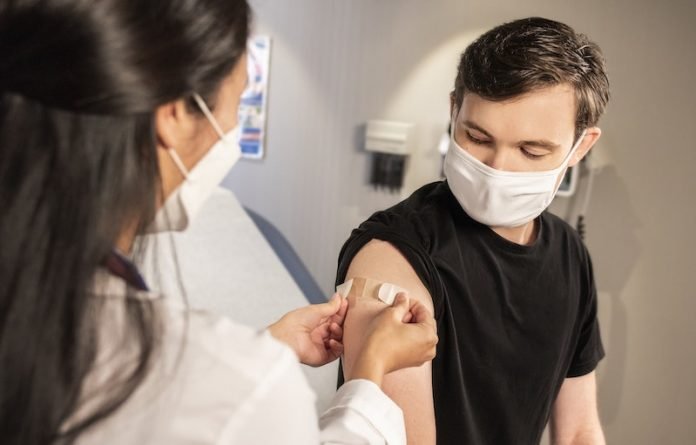
In a Hadassah Ein Karem Medical Center study, scientists found that the risk of developing myocarditis among males ages 16 to 19 years was about 1 in 15,000 after a third dose of the Pfizer-BioNTech COVID-19 vaccine, and the cases were rare and mild.
Several previous studies have highlighted a possible connection and potentially increased risk of heart muscle inflammation after receiving an mRNA COVID-19 vaccine.
Typically thought to be triggered by a viral infection, myocarditis is the inflammation of the middle layer of the wall of the heart muscle, the myocardium.
This condition is uncommon and may temporarily or permanently weaken the heart muscle and the heart’s electrical system, which keeps the heart beating normally.
In the study, the team examined post-vaccination myocarditis in Israel after the first and second doses of the Pfizer-BioNTech COVID-19 vaccine.
From July 31, 2021, to November 5, 2021, nearly 4 million (3.94 million) adults in Israel received a booster dose of the Pfizer-BioNTech vaccine, about half (48.7%) of whom were males.
The researchers found that after a 30-day follow-up:
Fewer than 100 cases (91) of myocarditis were reported, including 35 cases that occurred within the first 30 days of receiving a COVID-19 booster (a 3rd dose) of the Pfizer-BioNTech COVID-19 vaccine.
28 cases of myocarditis were probable or confirmed, and 18 occurred within the first seven days after receiving the booster dose of the Pfizer-BioNTech vaccine.
All 28 cases of myocarditis were clinically defined as mild, and individuals recovered within an average of 3.5 days in the hospital.
Males ages 16-19 were at the highest risk, with 6 in 100,000 individuals developing myocarditis, followed by males ages 20-24, 30-39, and 25-29.
Researchers believe further study is required to explain better what may predispose young males to develop myocarditis after a COVID-19 vaccine and the pathophysiological mechanisms involved.
If you care about heart health, please read studies about white bread that could increase the risk of heart attack, and this combo therapy can cut the risk of heart attack and stroke by half.
For more information about COVID, please see recent studies about a new drug that could prevent COVID-19, and results showing this wearable air sampler could detect personal exposure to coronavirus.
The study was conducted by Dror Mevorach et al and published in Circulation.
Copyright © 2022 Knowridge Science Report. All rights reserved.



